LL.M. Courses
Twenty-four credits of study are required for the LL.M. degree. Our specialized courses are developed specifically for the LL.M Program and generally are offered for 1-2 credits. The only required courses are Agriculture & the Environment, Food Law & Policy, Agricultural Perspectives, and Advanced Writing in Agricultural & Food Law.
The courses that are offered each semester are tailored to student interest, with "selected topics" courses created each semester to address emerging issues and current trends.

Introduction to the Law of Food & Agriculture
Orientation course that provides an overview of the legal and policy issues presented by the production of food and fiber, including a discussion of structural changes in agriculture, sustainability issues, and trends in consumer interest.
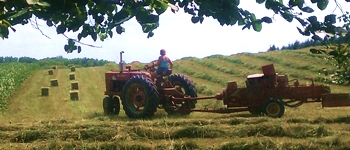
Agriculture and the Environment
Agriculture is increasingly criticized for its impact on the environment. This course examines the tensions between the desire to produce food and fiber efficiently and concern for sustainability and the protection of natural resources.

Food Law & Policy
An introduction to the network of laws that govern our food system. An overview of regulation by both the Food & Drug Administration and the USDA is provided. Policy considerations are discussed in light of current issues.

Food, Farming & Sustainability
Survey of the complex legal topics that make up the body of agricultural and food law focusing on current issues of significance.
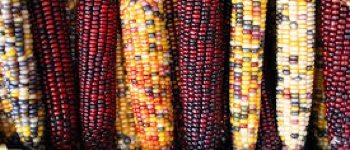
Legal Issues: Indigenous Food & Agriculture
This course examines the complex interaction of tribal law, treaties, and federal agricultural and food laws, including property law applicable to tribal lands.
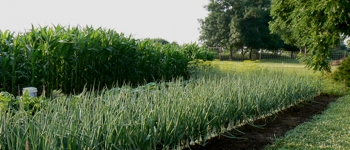
Agricultural Policy & the Federal Budget
Study of the impact of the Office of Management and Budget and the cost scoring system on federal agricultural policy making in Washington, D.C.Current farm policy issues are discussed within the context of budgetary constraints and pressures.

Administrative Process and Practice in Agricultural & Food Law
Study of administrative law & practice in the specialized areas of agricultural and food law.Relevant regulatory agencies are introduced.Rulemaking, adjudication, and judicial review are covered.

Specialized Legal Research and Writing
Legal writing skill development, including training in plain-English legal writing, electronic research training, and publication strategies.

Urban Agriculture: Law & Policy
Study of the legal issues raised by the rising interest in urban agricultural activities.Topics of study include land use and zoning issues, farmers market issues, and legal issues associated with community sponsored agriculture.
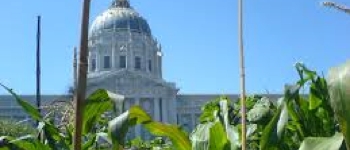
Business Human Rights & Corporate Social Responsibility
The course explores the business-human rights nexus with a particular focus on the food and agricultural sector and on case studies from around the world. The course introduces students to the linkages between business and human rights from a variety of (legal, regulatory, and policy) perspectives.

The Right to Food
This course will provide an overview of the historical development of the right to food, evaluate the rights, obligations and responsibilities of rights-holders and duty-bearers of the right to food, and will examine legal and non-legal mechanisms that are increasingly used to adjudicate the right to food.
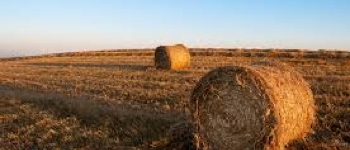
Agricultural Perspectives
Agriculture has a rich and varied history, and today’s issues are often best understood in the context of this history.This course examines a wide range of social and economic issues, considering their origin and how history is reflected in today’s policies. The course includes a series of documentaries.

Environmental Regulation of Agriculture
This course examines the major federal environmental statutes applicable to agricultural operations with attention to current cases and controversies under those laws.It also explores the regulatory authority and enforcement practices of the EPA and other agencies.

Food Justice: Law & Policy
Survey of the legal and policy issues raised by the food justice movement. Topics covered include food insecurity and poverty, public health concerns such as obesity, the economics of healthy eating, food deserts, and food waste.

Agricultural Biotechnology
Study of the regulation of agricultural biotechnology, including the approval process for new technologies, the patenting of new products and technologies, and the restrictions associated with their use.
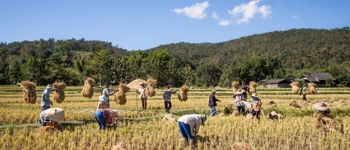
Agricultural Labor Law
Study of the legal, social, and economic issues that arise from the extensive use of migrant labor in U.S. agricultural operations. Topics include agricultural exemptions from labor laws, the Migrant & Seasonal Agricultural Worker Protection Act, and agriculture’s reliance on undocumented alien workers.

Farmed Animal Welfare Law & Policy
Examination of the legal issues involved in determining welfare standards for animals raised for food.In addition to introducing federal animal welfare and humane slaughter laws, state referenda, state law standards, and so-called “ag gag” laws are studied.

Federal Nutrition Law & Policy
Study of federal nutrition policy, including the development of the federal nutrition standards, the framework for the food assistance programs, the federal school lunch program, and the government’s efforts to encourage healthy eating.

Federal Regulation of Food Labeling
Study of the federal laws regarding the labeling of food, considering both FDA and USDA regulation. The course includes the study of nutrition labeling, health claims, advertising issues, and efforts to curb the obesity epidemic through educational labeling.

Federal Regulation of Food Safety
Study of the federal laws that regulate food safety, considering the FDA authority under the Food, Drug and Cosmetic Act, as expanded by the Food Safety Modernization Act and USDA authority to regulate meat and poultry safety. Current issues and concerns are addressed.

Regulated Markets in Agriculture
Study of the economic regulation of specific sectors of the agricultural industry focusing on perishable agricultural commodities (fruits & vegetables), and dairy products. Included is the study of formal and informal administrative review.

Food Safety Litigation
Examination of food borne illness litigation with an initial introduction to food product liability followed by the study of actual cases brought against food manufacturers.

Advanced Writing in Agricultural & Food Law
Research in a specialized area of agricultural or food law and development of a paper that demonstrates rigorous legal analysis and quality legal writing.
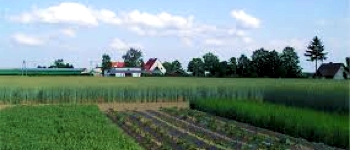
Federal Farm Programs and Crop Insurance
Survey of the complex network of federal farm programs and federal crop insurance programs that are available to U.S. producers.
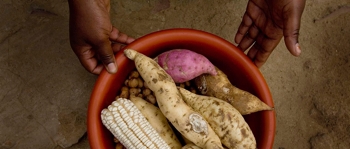
Global Food Security
Survey of the role of law and policy in affecting problems of global food security in the face of increasing population, changing diets, environmental pressures, and climate change.

Independent Research in Agricultural & Food Law
Independent research in agricultural and food law conducted under the supervision of a faculty member.

Introduction to Agricultural Income Taxation
Overview of federal income tax law as applied to agricultural operations.
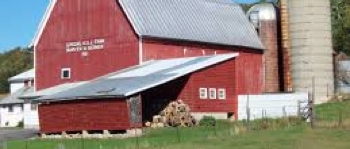
Legal Issues in Agricultural Land Tenure
Overview of the role landownership and use plays in the operation of American agriculture. The course will examine the history of federal land policy in the U.S. such as the Homestead Act and other land grants in forming our land ownership structure and will examine the current reality of land tenure in the U.S., looking at who owns farmland and in what legal structures.
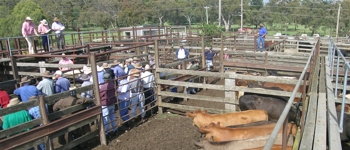
Regulation of Livestock Marketing & Sales
Study of the regulation of livestock and poultry sales under the Packers and Stockyards Act, with a particular focus on production contracting, mandatory price reporting, industry concentration, and anti-trust issues.

Selected Issues in Agricultural and Food Law
Specialized study of one or more current issues in agricultural and food law, regulation, and policy.

Selected Issues in International Food & Agriculture
Specialized study of one or more current legal or policy issues related to international agriculture and food systems.

Local/Regional Food Systems & the Law
This course examines recent efforts to re-establish local and regional food systems and explores the attendant legal and policy issues.

Agricultural Bankruptcy
Examination of bankruptcy law as applied to agricultural operations, including Chapter 12 – Family Farmer Reorganization. No prior knowledge of bankruptcy is required.

Agricultural Finance & Credit
Study of the legal issues surrounding the financing of agricultural operations, including credit availability, agricultural security issues under the Uniform Commercial Code, and debt restructuring opportunities. Special focus is on lending options offered by the Farm Service Agency and the Farm Credit System.

Intellectual Property in Food & Agricultural Products
Introduction to Copyright Law, Trademarks Law and Patent Law as applied to agriculture and food. It will include issues from Trademark Law, such as Certification Marks, Geographical Indicators, Trade Dress, copyright laws on food recipes as well as copyright laws on food labeling.

Practicum in Agricultural & Food Law
This experiential course provides LL.M. candidates with an opportunity to work with agencies, advocacy organizations, businesses, and others engaged in agricultural and food law practice and policy throughout the country. Work can be performed on-site or via distance.

